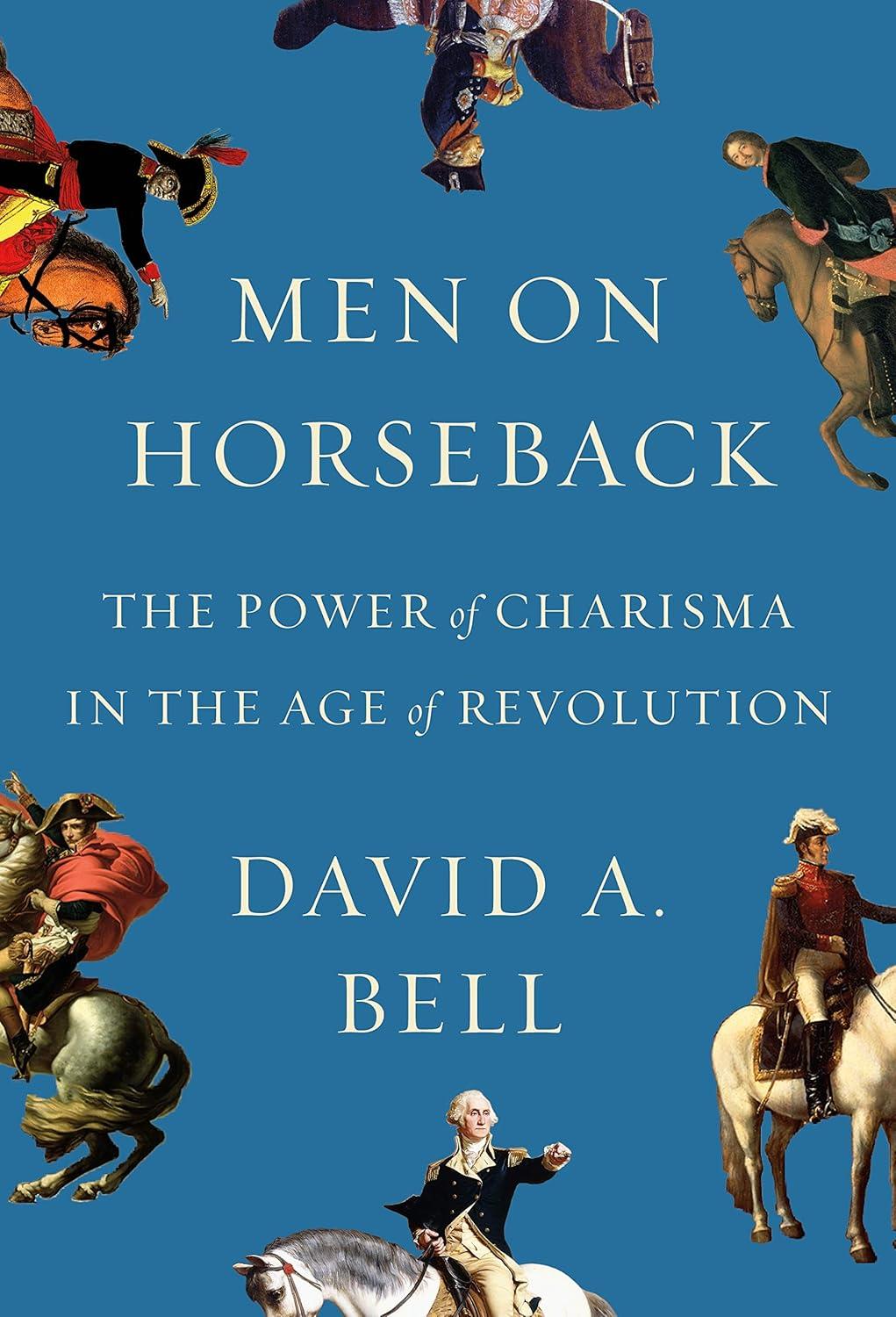In Men on Horseback, David A. Bell, a professor of history at Princeton, takes Weber’s conjecture a stage further. Democracies, he points out, are particularly suspicious of charismatic leaders:
Yet, paradoxically, the longing for such leaders acquired new importance, and a distinct new shape, during the very same period that witnessed the first stirrings of modern democracy: the eighteenth and early nineteenth centuries.
It was during that period of extraordinary intellectual ferment and then in the great revolutions that washed across much of the Western world between 1775 and 1820 that the powerful forms of political charisma we are familiar with today emerged. The coming of democracy transformed the relationship between the people and their leaders, and the personal magnetism of the leader electrified that relationship. Far from representing a backsliding toward older forms of government, the new Caesar, adored by the masses and personifying the new nation, was intrinsic to the modern world.
In fact, one might argue, it is only in our own time that we can see most clearly how it all works. The leader’s rallies, his broadcasts, his photo opportunities, his tweets—these do not simply decorate the serious business of governing; they are part and parcel of it. True, in the past and perhaps in the present too, charismatic leaders have often threatened constitutional orders, but they were crucial to the initial creation of those orders, not only by engineering the rupture with the ancien régime but also by bonding the public to this strange new world. The charismatic leader breaks the rules not just because, he claims, the rules are harmful to the people, but because breaking the rules shows that he has charisma; he is beyond good and evil, and beyond a lot of other boring stuff too.
As Weber writes elsewhere:
In order to do justice to their mission, the holders of charisma, the master as well as his disciples and followers, must stand outside the ties of this world, outside of routine occupations, as well as outside the routine obligations of family life.
Charisma is both revolutionary and unstable: “It can only tolerate, with an attitude of complete emotional indifference, irregular, unsystematic, acquisitive acts.” The charismatic can often be identified by the absence of a certain normal human pulse. After a fractious meeting with Winston Churchill in 1914, Henry James said to Violet Asquith that “it had brought home to me—very forcibly, very vividly—the limitations by which men of genius obtain their ascendancy over mankind.”
To demonstrate his thesis, Bell takes five of the most memorable leaders from the revolutionary period: Pasquale Paoli of Corsica, George Washington, Napoleon Bonaparte, Toussaint Louverture—liberator of Haiti and leader of the greatest slave revolt in history after Spartacus—and Simón Bolívar, who led the northern half of South America to liberation from its Spanish masters. Four fifths of the book is given over to beguiling portraits of this extraordinary quintet, whose reputations were to become entangled in a glittery web of global hero worship: Louverture, for example, being known both as the Black Napoleon and the Washington of the Antilles, Bolívar delighting in being called the Washington of South America. Bell constantly stresses that the cultural setting in which these heroes operated was distinctly modern. The panegyrists of old-style monarchs would never have portrayed them as interacting with the public in the intimate style in which James Boswell, in his 1760s travelogue, describes Paoli meeting ordinary Corsicans.
